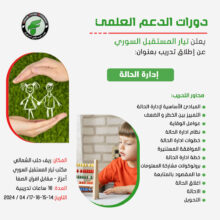Between Education and Upbringing: Differences and Features

Education and upbringing are the two fundamental pillars for building an aware, educated generation capable of facing future challenges. These elements play a critical role in shaping a child’s personality and developing their mental, emotional, and social abilities. The importance of education and upbringing in childhood lies in:
- Identity Formation: Education and upbringing help a child discover their identity and foster a sense of belonging and responsibility.
- Skill Development: The child acquires a wide range of life skills, such as reading, writing, arithmetic, critical thinking, and creativity.
- Character Building: A balanced and strong personality is developed, characterized by self-confidence and respect for others.
- Social Adaptation: Interaction with others and building healthy social relationships.
- Preparation for the Future: It prepares the child for entering the professional world and equips them to achieve their goals and ambitions.
The Difference Between Education and Upbringing:
Education and upbringing are interconnected concepts but different at the same time. They are often used interchangeably, but each has its own specific meaning.
Education is the transfer of knowledge and skills through:
- A primary focus on the mind, involving the transmission of knowledge, information, and academic skills.
- The school environment and curriculum.
- A direct goal, as its main aim is to equip individuals with the knowledge necessary for success in academic and professional life.
Upbringing, on the other hand, is about shaping personality and behavior, achieved through:
- Holistic development, including all aspects of an individual’s personality, such as values, ethics, and behaviors.
- A broader environment that extends beyond school to include the family and society.
- A wider goal, where the ultimate aim is to develop a well-rounded and balanced individual capable of handling different aspects of life.
One could say that education is a part of upbringing. Education provides the individual with cognitive tools, while upbringing shapes their character and helps them use these tools effectively. For example:
- Education: Teaching a student multiplication tables.
- Upbringing: Teaching the student the importance of honesty and integrity in dealing with others.
Thus, the relationship between education and upbringing lies in how education supports upbringing. The knowledge gained through education helps individuals understand the world around them and make sound decisions.
Carriers of Education and Upbringing:
The carriers of education and upbringing are terms that refer to the factors and foundations upon which the process of human development and personality building is based. These carriers form the framework through which knowledge, values, and behaviors are transmitted.
A. Carriers of Education:
- The Teacher: The teacher is the spark that ignites the flame of knowledge in students’ minds. They serve as a role model from whom students learn and who greatly influences their personalities.
- The Curriculum: The curriculum is the plan that outlines the content and materials taught to students. It aims to develop critical thinking, creativity, and problem-solving skills.
- The School: The school is the environment where education takes place, providing the necessary resources and services to support the learning process.
- Technology: Technology plays an increasingly important role in education, offering new tools and methods for learning and teaching.
- The Family: The family is considered the child’s first school, playing a critical role in shaping their personality and guiding them toward learning.
B. Carriers of Upbringing:
- Values and Ethics: Values and ethics form the foundation upon which an individual’s personality is built, guiding their behavior and decision-making.
- The Social Environment: The individual’s surrounding social environment, including family, friends, and society, has a significant influence on their development.
- Religion and Culture: Religion and culture play an essential role in shaping individual identity, values, and beliefs.
- Positive Role Models: People who serve as positive role models for the individual play a crucial role in guiding their behavior and encouraging them to follow positive values.
- Life Experiences: The experiences that a person encounters in their daily life contribute to shaping their character and developing their skills.
Examples of carriers of education and upbringing include:
- Educational Carrier: A school textbook in mathematics.
- Upbringing Carrier: A children’s story that reflects the values of honesty and integrity.
The carriers of education and upbringing work in harmony to shape an individual’s personality and develop their capabilities, contributing to the building of more developed and prosperous societies.
Conclusion:
The process of building a mature and useful generation for the future is a shared responsibility of the family, school, and society as a whole. Therefore, we at the Family Affairs Office of the Syrian Future Movement recommend the following to achieve this goal:
A. At the Individual and Family Level:
- Focus on Lifelong Learning: Encourage continuous learning throughout life, whether through reading, training courses, or higher education.
- Instill Ethical Values: Teach children good moral values such as honesty, integrity, respect, and responsibility.
- Provide a Stimulating Learning Environment: Create a home environment that encourages reading and learning, and provide the necessary tools for it.
- Develop Life Skills: Teach children essential life skills, such as cooking, cleaning, and time management, to help them become self-reliant.
- Effective Communication: Communicate openly and honestly with children, listening to their opinions and feelings.
B. At the School Level:
- Update Curricula: Modernize curricula to keep pace with scientific and technological developments and make them more relevant to real-life situations.
- Diversify Teaching Methods: Use diverse and innovative teaching methods, such as cooperative learning and project-based learning.
- Develop Critical and Creative Thinking Skills: Focus on developing students’ critical and creative thinking skills, empowering them to solve problems and make decisions.
- Provide a Safe and Stimulating Educational Environment: Create a safe and motivating school environment that encourages cooperation and healthy competition.
- Cooperation with Families: Strengthen cooperation between school and family, exchanging information on students’ progress and development.
C. At the Community Level:
- Updating Curricula: Updating curricula to keep pace with scientific and technological developments and making them more relevant to real life.
- Diversifying Teaching Methods: Using diverse and innovative teaching methods, such as cooperative learning and project-based learning.
- Developing Critical and Creative Thinking Skills: Focusing on developing students’ critical and creative thinking skills, enabling them to solve problems and make decisions.
- Providing a Safe and Stimulating Educational Environment: Creating a safe and motivating school environment that encourages cooperation and fair competition.
- Collaboration with Families: Strengthening cooperation between schools and families, exchanging information about students’ progress and development.
At the Community Level:
Providing Educational Opportunities for All: Ensuring that all individuals have access to education, regardless of their social or economic background.
Supporting Educational Institutions: Supporting both public and private educational institutions, and providing the necessary resources to improve the quality of education.
Raising Awareness of the Importance of Education: Organizing awareness campaigns on the importance of education and its role in comprehensive development.
Encouraging Scientific Research and Innovation: Supporting scientific research and innovation, and providing the appropriate environment to develop new ideas.
Through collaboration among all parties, we can build an informed, educated generation capable of facing future challenges and building a better society.
Office of Family Affairs
Research Team
Department of Research and Studies
Articles
Syrian Future Movement






